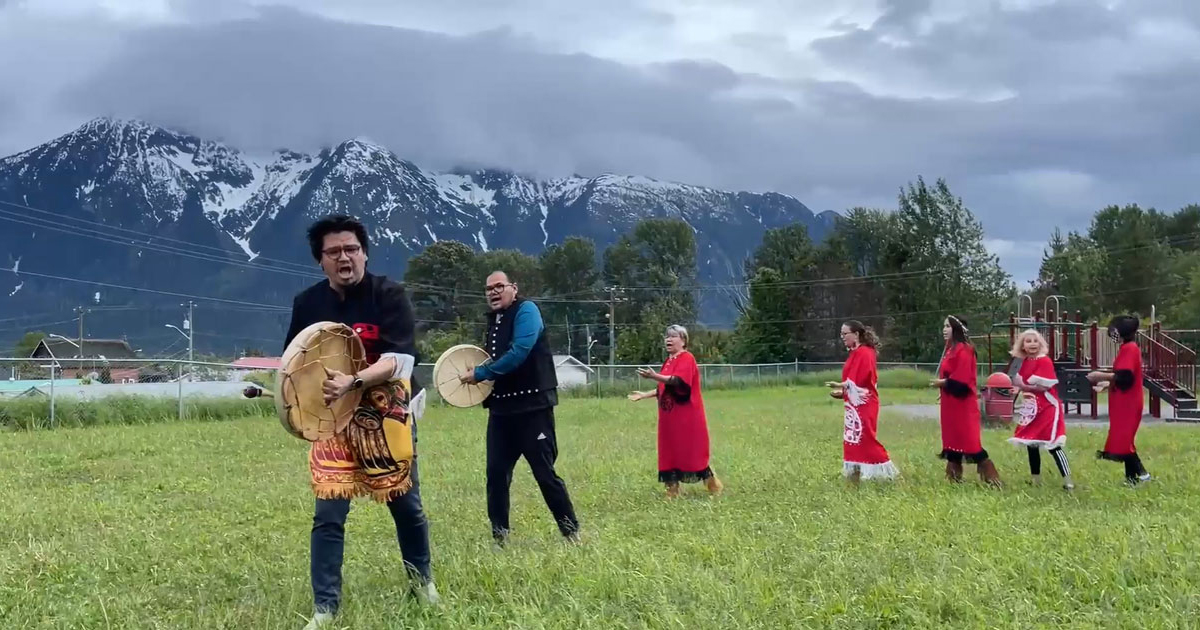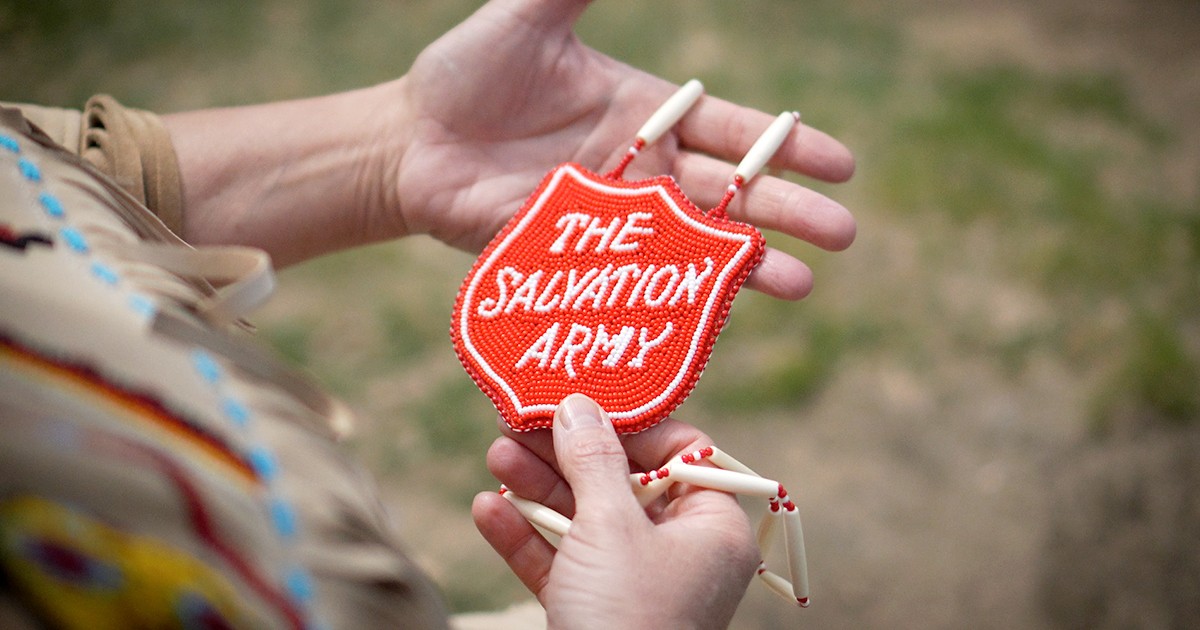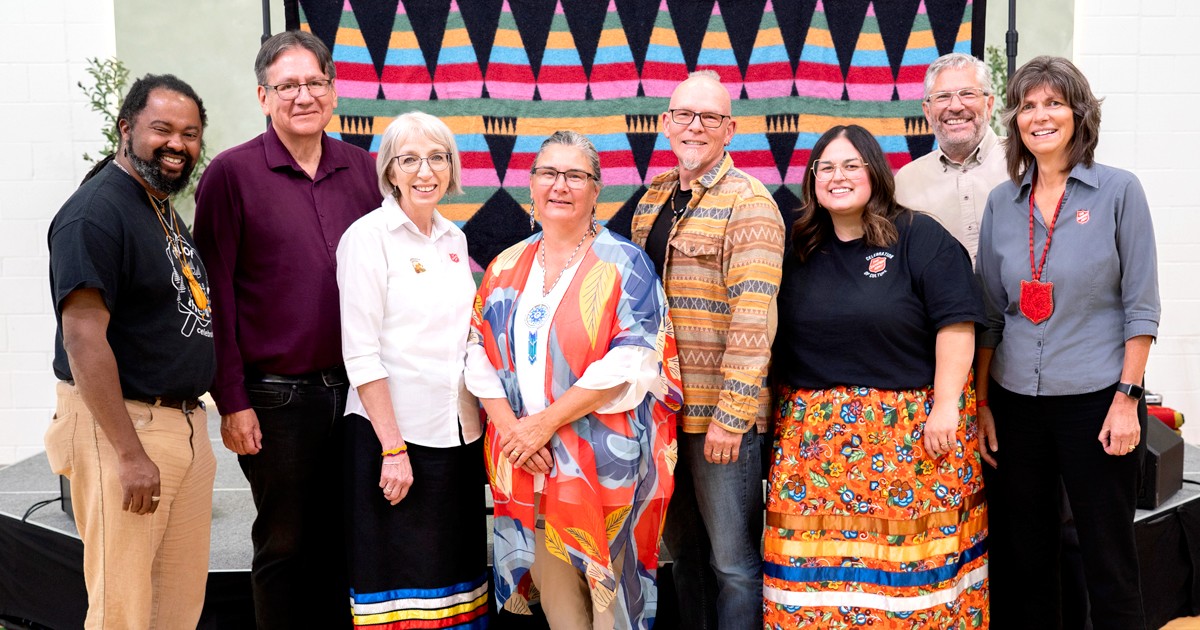The Salvation Army’s fourth annual Celebration of Culture, which took place virtually in August, brought Indigenous and non-Indigenous peoples together in conversation to listen, learn and appreciate Indigenous cultures across Canada.
“This gathering is a time to build new relationships based on trust and to learn to walk gently on the journey of reconciliation,” said Commissioner Tracey Tidd, territorial president of women’s ministries.
The two-day celebration began on Saturday with creative workshops, such as a Niitsitapi Pow Wow dance instruction; an introduction to beading with Captain Crystal Porter, associate territorial Indigenous ministries consultant; and a lesson on cooking traditional frybread with Millie Azak and Sheena Johansen from the Nisga’a Nation.
The virtual opening ceremonies, led by Major Shari Russell, territorial Indigenous ministries consultant and member of the Yellow Quill First Nation, began with a land acknowledgment and a prayer by Captain Porter, followed by a pipe ceremony by Casey Church of the Potawatomi Nation, and greetings from Commissioners Floyd and Tracey Tidd, territorial commander and territorial president of women’s ministries. More than 50 participants joined the main session with special guest Terry LeBlanc, executive director of Indigenous Pathways and the North American Institute for Indigenous Theologies, and traditional healing elder for the Abegweit Mi’kmaw community in Prince Edward Island.
On Saturday evening, participants chose from a lineup of inspirational workshops led by members of different First Nations. In one of these sessions, Elder Chief Vincent Yellow Old Woman of the Siksika Nation, a residential school survivor, shared his experience with religion and Indigenous culture, and his quest to learn who he is, where he comes from and who his people are. He challenged participants to think about many of the struggles Indigenous people face today and in the past, and how to respond to them.
“We want people to appreciate and listen to what we’re trying to say,” Yellow Old Woman said. “We’re not looking for a solution, but for appreciation. Listen to us. We have our own words and our own culture that we use. Listen to us and appreciate what we’re trying to say.”
Other inspirational workshops included “Stewarding Sacred Seeds” by the Evangelical Fellowship of Canada; “Finding Our Stories” by Erica Azak, corps leader, Gitwinksihlkw, B.C., and Major Karen Hoeft, executive director at the Waterston Centre in Regina; and “The Land is a Dish” by Adrian Jacobs, who spoke about the health and lifestyles of Indigenous people and the importance of connecting with the land around us.
Throughout the event, workshops were available to children and youth, including sessions on painting and the book Nibi’s Water Song.
During Sunday’s closing ceremonies, LeBlanc spoke again about living an abundant life, sharing from John 10:10: “I have come that they may have life, and that they may have it more abundantly” (NKJV). He shared the message that abundant life is not about the abundance of material things, but the abundance of God in people and how this connects us.
“All peoples of the earth have been created for the same purpose—to seek after God,” LeBlanc said. “We might organize or structure our pursuit of the purpose differently, but we were created by the same Creator. His image and likeness are in us. We all possess the same spirituality.”
Worship continued with a song by Travis Williams of the Gitxsan Nation in Gitsegukla, B.C., and a performance by the Four Crest Dancers.
In honour of the 215 unmarked graves found at the Kamloops Indian Residential School in British Columbia, and more that continue to be uncovered across the nation, Brian Doerksen performed a song called 215, written by Cheryl Bear. “Within Indigenous communities, these are our children. Sons, daughters, sisters, brothers, grandchildren. They are our family,” said Major Russell.
Major Russell presented Commissioners Tidd with a gift, a traditional Indigenous beadwork of the Salvation Army shield on moose hide, created by Captain Porter. In Indigenous culture, beading is a form of communication of histories, stories, identities and spiritual values.
Later in the service, a memorial scholarship was announced in honour of Jordan Brown-Ratcliffe, the son of Majors Wil and Catherine Brown-Ratcliffe, corps officers in Belleville, Ont., who passed away on December 22, 2019. The award will sponsor Indigenous young people to attend the Celebration of Culture each year. A video was shown celebrating the life of Jordan, and Majors Brown-Ratcliffe shared memories with Major Shari Russell.
“Over the past several years, this Celebration of Culture has become a significant event in the life of our territory and is one way we’re responding to the Truth and Reconciliation Commission’s calls to action,” said Commissioner Tracey Tidd in closing. “The Salvation Army seeks to walk the journey of reconciliation, to work toward justice and healing in our nation as we grapple with the truth of our history and ongoing relations with Indigenous Peoples.”










Leave a Comment